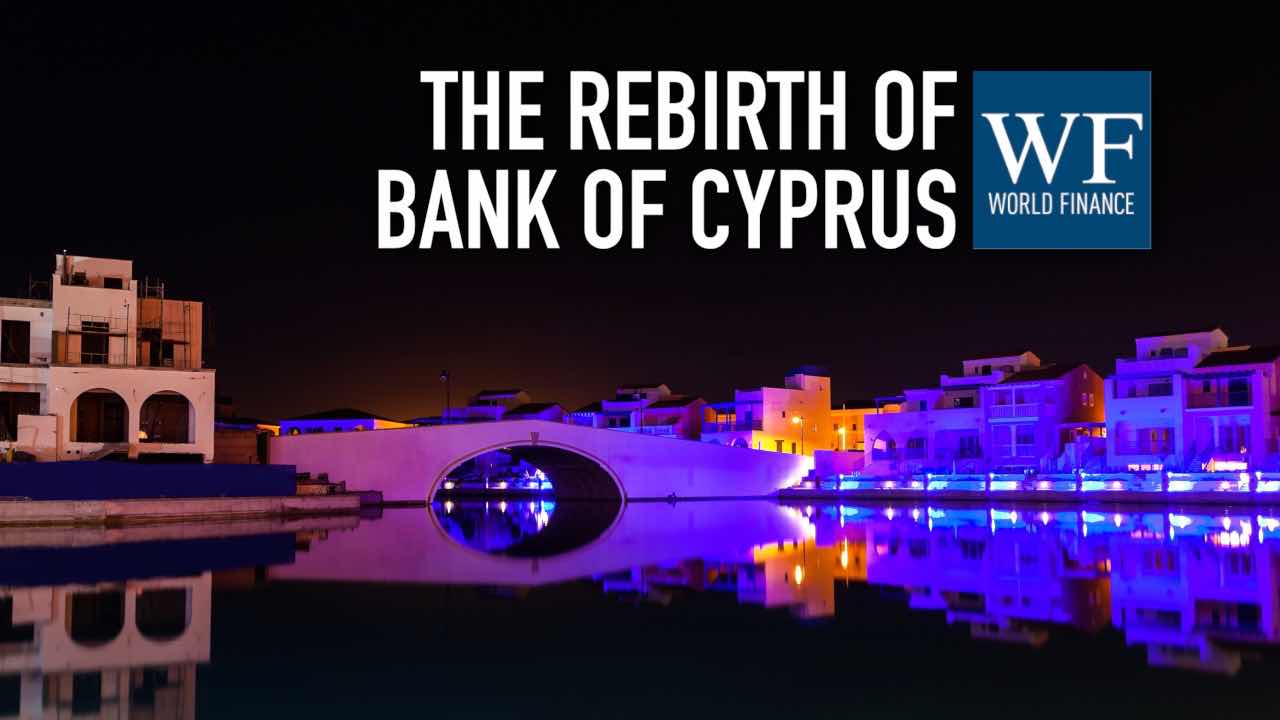Persella Ioannides on ‘glocalisation’ | Meritkapital | Video
World Finance interviews Persella Ioannides, Executive Director of Meritkaptial, on the effect the Cypriot economy has had on business.
Related:
Transcript
The flow of funds into Cyprus has created opportunities for investors and asset managers alike but not without risk, as evidenced by March’s European intervention. Persella Ioannides from Meritkapital joins World Finance to discuss brokerage services and the European market.
World Finance: First introduce us to your business lines and services
Persella Ioannides: Our main business lines are custody, brokerage, so electronic trading, asset management, and recently we received our trading license. We cater mainly to Russian clients, so as such our competition is also big Russian investment firms that are themselves domiciled in Cyprus. Some examples are Renaissance Capital, Otkritie Brokerage Service, this is quite a substantial benefit for us because we face that competition and we thus benchmark versus their services, and because they have quite a substantial shared capital base they are investing very much in their infrastructure and their services. As you know it’s an industry that is developing very fast technically, so also we ourselves are also developing with them by benchmarking to their standards.
World Finance: You are based in Cyprus as you mentioned, how were you affected by the EU and IMF’s bailout recently this year?
We were unaffected by the Cyrpus-EU bailout terms because our client’s funds were protected
Persella Ioannides: We took a management decision when we started the company to use non-Cyprus based custodians, and as such we were unaffected by the Cyrpus-EU bailout terms because our client’s funds were protected and were not affected. Moreover, our operations were continued in full and were not affected by the capital controls that were imposed on the banking sector in Cyprus, because our clients’ funds were abroad. This is also the case for other financial services firms such as FX companies or our Russian counterparts in Cyprus because they themselves also use global custodians, and thus, their operations were not affected.
World Finance: You’ve spoken before about ‘glocalisation’ tell us what you mean by this?
Persella Ioannides: ‘Glocalisation’ is a term that is known globally, and it’s basically combining a global perspective and global standards with a local requirements. If you take the instance of Meritkapital, the way we establish a foothold in a very monopolistic western capital markets industry is to provide a service offering that combines investment advice, electronic trading, which are front office services with a prime brokerage service line, which includes settlement and clearing, custody as you know, financing margin trading. So if you take examples of western companies such as Macdonalds or Starbucks, they tend to have a very standardized menu, but they combine it with their local product offering. So in that effect, Meritkapital also tries to provide a derivative product that is front office, and prime brokerage service line, which proved very successful because this is a local and regional requirement for us.
World Finance: Looking at the global markets, which trade calls look good to you in the medium term.
In my opinion we’re actually living in a very boom and bust economic environment which is triggered by the actions of the global central banks
Persella Ioannides: As you very correctly said, the equity markets and the commodity markets are experiencing quite a boost and in my opinion we’re actually living in a very boom and bust economic environment which is triggered by the actions of the global central banks through their liquidity triggering and their respective monetary easing operations. So following the sub-prime and the subsequent euro-debt crisis, like the global central banks tried to boost the global economic activity, but perhaps a lot of that economic activity is artificial which can be evidenced by the sharp rise in the equity and commodity markets.
We tend to follow a very conservative approach, so our investments are mainly in fixed income instruments, but we utilise fixed income instruments that have a twist to take advantage of the ensuing macro-economic environment. So for example, convertible bonds that have an equity underlying, maybe utilised in this environment where equity markets are performing well. Or floating rate bonds, if the central banks reverse their monetary policy operations where as you know, floating rate bonds will benefit from interest rates rising. Generally right now we keep duration in check, for the reasons that you just said.
World Finance: Finally, what are your thoughts on the ECB’s monetary policy and what advice would you give to Mr. Draghi?
Persella Ioannides: The advice that I would give Mr. Draghi is basically to take a more forceful and decisive decisions in his monetary policy operations, and that is true for most European policy makers because we all know that the Greek debt crisis basically reached the stage that it did because they were delaying in their monetary policy decisions. They need to be more forceful, because as we all know, Europe is very fragmented both culturally and politically, so there needs to be a unified approach to decision and decision-making.
World Finance: Persella, thank you.
Persella Ioannides: Thank you very much for having me

 How Bank of Cyprus came back from its bail-in to listing in London
How Bank of Cyprus came back from its bail-in to listing in London
